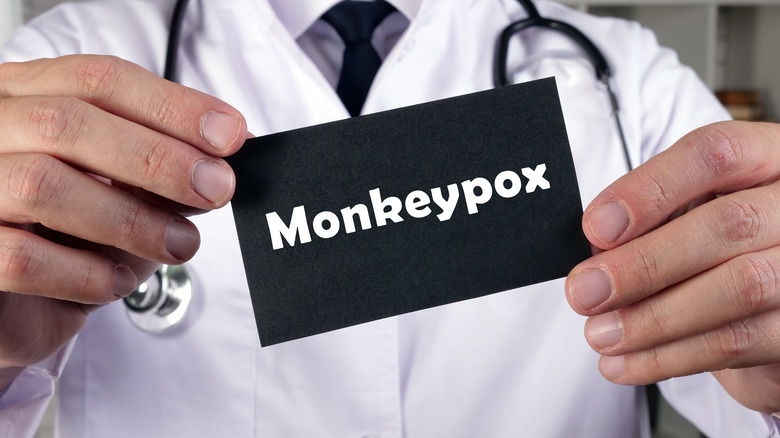Could Monkeypox Soon Be Deemed A Public Health Emergency By The World Health Organization?
The World Health Organization (WHO) announced Tuesday that it will hold an emergency meeting next week to determine if the current monkeypox outbreak should be deemed a public health emergency. During a briefing, WHO Director-General Dr. Tedros Adhanom Ghebreyesus said that an emergency committee would meet on June 23 and discuss the matter. The meeting will include input from outside experts who can share their knowledge about the monkeypox virus (via CNBC).
Ghebreyesus explained that the current outbreak of monkeypox is unusual, and that the virus is behaving differently than it has in the past. Some people have reported symptoms of monkeypox that are different from what has been observed in past outbreaks. For example, some people develop pimple-like bumps or they experience a small, localized rash instead of a rash that covers large areas of the body. Other patients experience a rash with no other symptoms, and some individuals report painful inflammation of the rectum lining, known as proctitis, NBC News reports.
When does the WHO declare a public health emergency?
The WHO explains that when an event becomes a health risk via the global spread of disease, that means it could require a coordinated international response. In this case, it is declared a public health emergency of international concern, or a PHEIC. Most of the time, the circumstances surrounding the event are sudden, serious, and carry serious implications for public health that may require immediate global action.
Dr. Ibrahima Soce Fall, the WHO's emergencies director for Africa, said that with advice from health experts from across the globe, the organization will be better informed before declaring a public health emergency. He said that the organization doesn't want to rush into making a decision, but it also doesn't want to wait until the situation is out of control either, CNBC reports.
The number of reported monkeypox cases this year has increased to 1,806 worldwide, according to Global Health, with 65 confirmed cases in the U.S. CNBC reports that 72 people have died from the virus, but that there have been no deaths in newly affected areas like the U.S.


